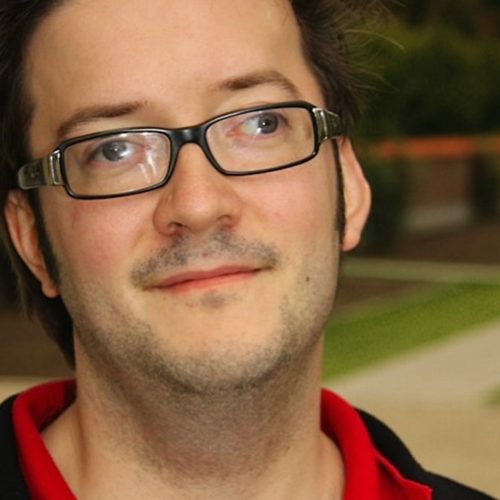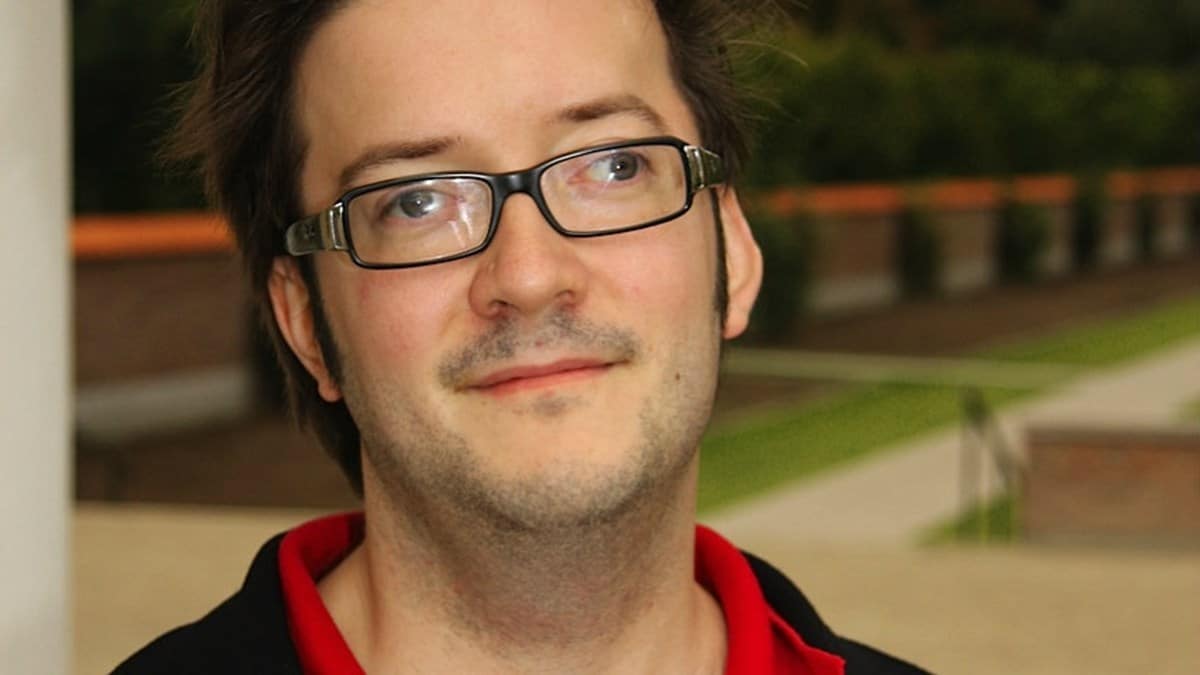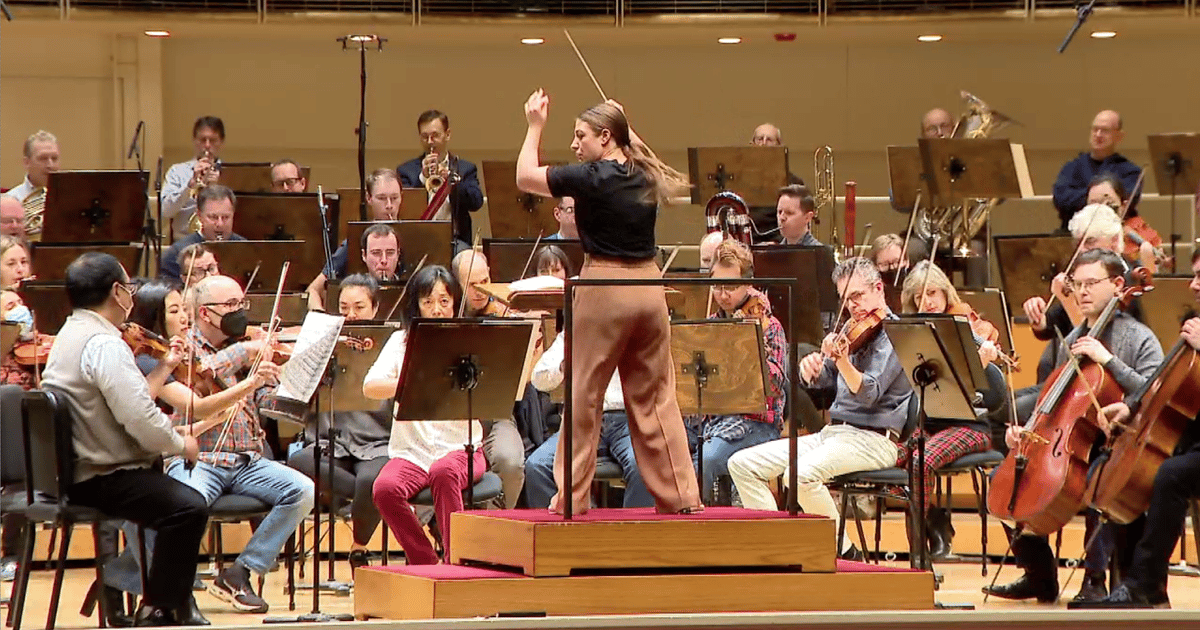A composer comes out with autism
mainThe excellent Swedish composer Benjamin Staern has taken part in a Swedish Radio documentary, discussing his autism diagnosis and its effect on his music.
In a world where composers are constantly advised to appear ‘normal’ (whatever that might mean), this is a bold and trailblazing act.
You can listen here.







The Swedes never got their language right, so the article is unreadable.
Autistic or not, I had never heard of this composer. But I found a couple of beautiful songs:
https://www.youtube.com/watch?v=4c_taVt2iUc
His orchestral piece ‘Jubilate’ sounds, however, rather average – the usual hip, colourful, half-tonal stuff touched-up with some empty bombast:
https://www.youtube.com/watch?v=IcrwVAArmZc
His trumpet concertino has beautiful, Messiaen-like harmonies, it’s just unfortunate that this man intervenes all the time with his damned instrument, a bit like Ives’ ‘Unanswered Question’:
https://www.youtube.com/watch?v=mR_Ca4LCSxo
At the end, after having gathered courage, the piece unashamedly harks back to Parisian twenties style.
I often have the feeling that these kind of composers, too young to have been lobotomized by hardcore modernism, actually, secretly, nostalgically, would like to write pre-modernist music as in the early 20th century, but feel terribly inhibited and anxious about any accusation of being ‘conservative’ or of ‘not understanding their own time’, so they pour some random dissonances and pure colourpatterns into their works, hoping that this will disguise their romanticism hiding in the closet. That is why ironic twenties style is just as far as they can go because it is not really meant ‘seriously’ and it is not ‘romantic’.
“I often have the feeling that these kind of composers […] would like to write pre-modernist music […] but feel […] anxious about any accusation of being ‘conservative’ […], so they pour some random dissonances and pure colourpatterns into their works, hoping that this will disguise their romanticism hiding in the closet.”
I think I don’t have to tell you that these “random dissonances” or ‘measures of action’ aren’t random at all (in a sense that they don’t follow a pattern). Often they are based on prime numbers and/or the fibonacci sequence or whatever the composer came up with to make her or his piece (or themselves, I guess?) “intellectual”.
In my little world, there are two kinds of composers. Some want to make enjoyable music. These I like.
The others want to be recognized as intellectuals (maybe they are, more often than not, they are, well, not.) For whatever ridiculous reason, they think basic knowledge of math will do the trick.
And now leave me be, humans, as I have to transform the Laplace operator to the spherical coordinate system and compress it to 2D to make sure the triangles make their dings at exactly the right time.
(It’s an octett for triangles only. If you don’t like it, then it’s just because you don’t understand maths! Troglodytes!)
The formation and combination of notes or sonic patterns according to mathematical principles still results in, well, randomness, not mathematical randomness but musical randomness. This problem of the relationship between mathematics and musical order has been hit upon by Schoenberg and unfortunately, the ‘solution’ he came up with, simply confirmed what you aptly describe. Musical order is something different from mathematical order.
John Borstlap: Yes, but Schoenberg changed music history – you on the other hand, never will. Nuff said.
P.S: By the way, read some Bach Chorales. There are a lot of arithmetic and algebra-related beauties there.
The idea that a composer ‘changed history’ stems from modernist ideology, which uses history to streamline evidence along party lines, entirely comparable with how dictatorial regimes rewrite history to their own benefit: fascism, communism.
And besides, what not many people know: Schoenberg did not change anything at all, he merely brought a destructive idea into the music world which was picked-up by a handful of similarly-minded people. During his life time – when his theories were often discussed but his works hardly ever performed – he was never accepted in the central performance culture. His ‘school’ was merely one of the many different strands in music life before 1940 and a very minor one, due to the constipated ugliness of most (not all) of its results. It was only after WW II that a young generation of people, having experienced the war as a child, and wanting to be a composer but wholeheartedly disliking the entire musical tradition, discovered Webern and thought that his works demonstrated entirely disembodied music without fascist emotion, and took it upon themselves to rewrite history in such a way that their own disembodied ugliness might seem like a normal continuation of tradition, and in the same time a fundamental revolution which broke with all of its aesthetics and meaning.
It is wholeheartedly recommended to read a bit about a subject before revealing one’s simpleton’s mind. ALL Bach’s intellectual games in his music are either the result of musical order, or unrelated to it but never impinging upon the flow of the music.
A striking example of Bach’s mathematical game playing which does not affect the beauty, the order and the expressive qualities of the music, is to be found in one of his keyboard duets, where a piece is written backwards from a certain point onwards, and which is totally imperceptable. And of course the ‘Art of Fugue’ is full with such things.
“John Borstlap: Yes, but Schoenberg changed music history – you on the other hand, never will. Nuff said.
P.S: By the way, read some Bach Chorales. There are a lot of arithmetic and algebra-related beauties there.”
You didn’t understand a word we were saying, did you? Ugh.
Indeed… but don’t forget decennia of misinformation in the educational system and half a century of propaganda. It is understandable that people simply take things on first appearance when the stuff is so widely spread in the sources. It takes time and independance of mind to get under the surface.
Brettermeier: And what is it you are actually saying that is anywhere in the approximate vicinity of insightful?…
“Brettermeier: And what is it you are actually saying that is anywhere in the approximate vicinity of insightful?…”
I take it you like math:
Mathematical (or numerical) order is a necessary but not sufficient condition for music.
You seem to be just another frustrated vindictive a**hole. No wonder SD is your niche….
“You seem to be just another frustrated vindictive a**hole. No wonder SD is your niche….”
Aren’t you a charmer! (And such a perceptive one, too!) 😀
Dear John! I hardly know you nor have I met you yet. Have you listened to Air-Spiral-Light? Please do and comment later. I am not inhibited and know what I am doing. Am like Berio, exploring different styles to find something completely “new” music in my experimental worlds. I think it is important to be more open as a composer these days than in the past. I hope I am not being too impudent. Respectfully, Benjamin
https://www.youtube.com/watch?v=yISSuaSmHUU
Don’t waist your breath Benjamin. Mr.Borstlap spends more time here on Slippedisc than at his composing desk.
He now even calls Boulez “dull”…
No wonder, Mr.Borstlap’s own music (heard only one piece, but life is too short) sounds like a walk in the desert.
True, select-discard-move on applies here. Thank you for now. B
So happy to see such thing said here! Most of the time I’m bored to death by so-called classical music, with their Mahler, Beethofen, those unbearable Mozart rambling piano concertos, and all that dumbo Bach for self-appointed intellectuals, etc. etc. and those vain conductors waving their hair and looking important etc. People just can’t hear the excitement that is in Boulez, it’s full of life & you hear the whole future. Just don’t understand why people prefer that old desert music and the same thing over & over again. And again. And it’s very expensive as well.
Sally
Dear John! I hardly know you nor have I met you yet. Have you listened to Air-Spiral-Light? Please do and comment later. I am not inhibited and know what I am doing. Am like Berio, exploring different styles to find something completely “new” music in my experimental worlds. I think it is important to be more open as a composer these days than in the past. I hope I am not being too impudent. Respectfully, Benjamin
Here’s the link of the aforementioned comment I did. https://www.youtube.com/watch?v=yISSuaSmHUU&t=1157s
That is a very interesting sound art work with lots of truly beautiful things in it. Again a very different idiom. (And much more interesting and livier than, say, Boulez which is mostly extremely dull, in spite of the colour patterns.)
The tones are vehicles for the colour patterns, instead of the other way around: colour patterns as vehicles for clarifying the relationships between the tones. The virtuoso writing, and the continuous invention of coloristic effect are impressive… and it seems that the players give their best.
https://www.youtube.com/watch?v=cih5zTR3BYI
Image if all that effort and colourful invention would go into tonal music where the tones are the carrier of the narrative instead of the colour patterns. Because, in colour patterns there is no musical logic, it is a decorative approach.
Composers are advised to be normal?! As a composer, I disagree. People often expect a composer to be eccentric, somewhat socially disengaged to a point and, of above-average intelligence…but I would say no-one has advised us to be “normal”, at least in my experience…from a PR point of view, this would be detrimental.
In contrary to this view, in almost ALL new works which are performed, it is the abnormality which has become normal, so the notion of normality has become quite confused. Think of Friedrich Haas, who exposes his psychopathology in both his marketing and his works, and that has become pure convention. Since the idea of ‘perpetual revolution’ in modernism, the cultivated (and artifical) unconventionality has become the norm, and thus: conventional.
the meaning of autism has been stretched beyond any reasonable sense : it can be anything between a totally crippling down syndrome to light behavioral difficulties.
in the case of someone who leads a perfectly active and creative life – that’s a totally fake label designed to attract attention.
My aunt Delia has always been considered autistic, because she was a vegetarian and refused to listen to well-meant advice. Also she claimed that Beethoven was descending from Africans and she therefore refused to listen to his music, preferring jazz. Now that she lives in an old peoples’ home in the veg department, she claims that most of society is autistic and that she always had been normal, and that classical music is autistic because it does not refer to the real world. We think she will get very old.
Sally